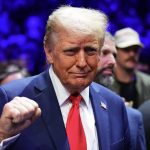The article is here; the Introduction:
On my bookshelf is a treasured relic of a bygone age, a full print edition of The Oxford English Dictionary (OED): twelve volumes plus five supplements, the last of them published in 1986. The OED puts the first use of journalism, “the occupation or profession of a journalist; journalistic writing; the public journals collectively,” at 1833. Journalistic, “of or pertaining to journalists or journalism; connected or associated with journalism,” arrived a few years earlier, in 1829. Reporter, “one who reports, debates, speeches, meetings, etc., especially for a newspaper; a person specially employed for this purpose,” originated earlier still, in 1813. And interview, “to have an interview with a person; specifically on the part of a representative of the press,” didn’t appear until decades later, in 1869.
I served as dean of Columbia University’s Graduate School of Journalism for ten years, from 2003 to 2013. During that time, I was privileged to attend dozens, or maybe even hundreds, of official journalism events: banquets, prize ceremonies, and so on. Almost invariably, the speakers would extol the First Amendment as a sacred constitutional enshrinement of our profession. Often one of them would observe that we are the only field of endeavor specifically mentioned in the Constitution, or assert that it was the framers’ special intent to put the amendment that mentioned us first because it was so important to them.
But as we see from the OED, such sentiments are self-celebratory historical fantasies, because there were no journalists in 1791, when the First Amendment was ratified. At the Constitutional Convention, in 1787, the framers specifically declined to include a press freedom clause in the original document, which is why the First Amendment, along with the rest of the Bill of Rights, was added a few years later by Congress. In the original version of the Bill of Rights, the current First Amendment was actually the Third Amendment, in line behind two others that were dropped because they couldn’t attract majority support.
If there were no journalists to celebrate, then what was the intention of the First Amendment’s press clause? The most enduring contrarian view is still probably that of historian Leonard W. Levy (first published back in 1962), who believed that the words to pay attention to in the First Amendment are “Congress shall make no law”—meaning that the First Amendment was supposed to clear the way for the states to restrict freedom of the press if they wanted to. Levy also argued that even for the federal government, the First Amendment was meant only to forbid prior restraint, which is why the short-lived Sedition Act of 1798, which was practically enforceable only after publication, didn’t contradict the First Amendment.
First Amendment scholar David A. Anderson, refuting Levy, argued that the First Amendment made national a principle that several states had already established. The original source of the language of the First Amendment, according to Anderson, was the Pennsylvania state constitution of 1776, which asserted that “the people have a right to freedom of speech, and of writing, and publishing their sentiments; therefore, the freedom of the press ought not to be restrained.” Anderson next follows the First Amendment trail to the Virginia constitutional ratifying convention of 1788, which adopted language that he sees as having been taken from Pennsylvania’s constitution: “That the people have a right to freedom of speech, and of writing and publishing their sentiments; that the freedom of the press is one of the greatest bulwarks of liberty and ought not to be violated.”
If one is searching for legal endorsement of the after-dinner speech version of the origin of the First Amendment, a good place to look would be a 1975 lecture by Justice Potter Stewart, called “Or of the Press,” on the amendment’s press clause. Stewart argued that the press clause should be understood as being aimed at the “organized” press, and is therefore conceptually distinct from both the speech clause and the rest of the Bill of Rights:
Most of the other provisions in the Bill of Rights protect specific liberties or specific rights of individuals: freedom of speech, freedom of worship, the right to counsel, the privilege against compulsory self-incrimination, to name a few. In contrast, the Free Press Clause extends protection to an institution. The publishing business is, in short, the only organized private business that is given explicit constitutional protection.
Stewart—who, for what it’s worth, was chairman of the Yale Daily News as an undergraduate—understood this institutional protection the First Amendment afforded the press as a distinct and limited one. It was meant not to enable people who happened to be publishing their work through news organizations to say whatever they wanted, but to enable the public to have more access to public information, in cases where the presence of a journalist was required to maximize the flow of facts to a broad audience. He described the role of the journalist this way in a short concurrence to a 1980 decision in the case of Houchins v. KQED: “He is there to gather information to be passed on to others, and his mission is protected by the Constitution for very specific reasons.”
Unlike Leonard Levy or David Anderson, Stewart made no claim to have gone through the contemporary historical materials underlying the drafting of the First Amendment, so what he said can’t function as proof that the framers shared his institutional and informational understanding of the press clause. My own conjecture would be that, whatever it should mean now, back then the First Amendment probably envisioned “the press” as a method for printing and disseminating speech, not as an organized endeavor dedicated to gathering and publishing verified information about public affairs, because the latter activity didn’t really exist yet. That is, originally the speech clause and the press clause would have referred to essentially the same thing, not to two distinct and separate activities, one citizen-empowering, the other profession-honoring.
Still, in the era of social media, it has become especially obvious that speech and press are not in fact the same thing. As Justice Stewart said, they should be conceived separately and legally treated separately. Considering this requires setting aside the fears many people, including my fellow journalists, have about the risks inherent in letting the law into journalism.
The post Journal of Free Speech Law: “Thinking the Unthinkable about the First Amendment,” by Nicholas Lemann appeared first on Reason.com.







